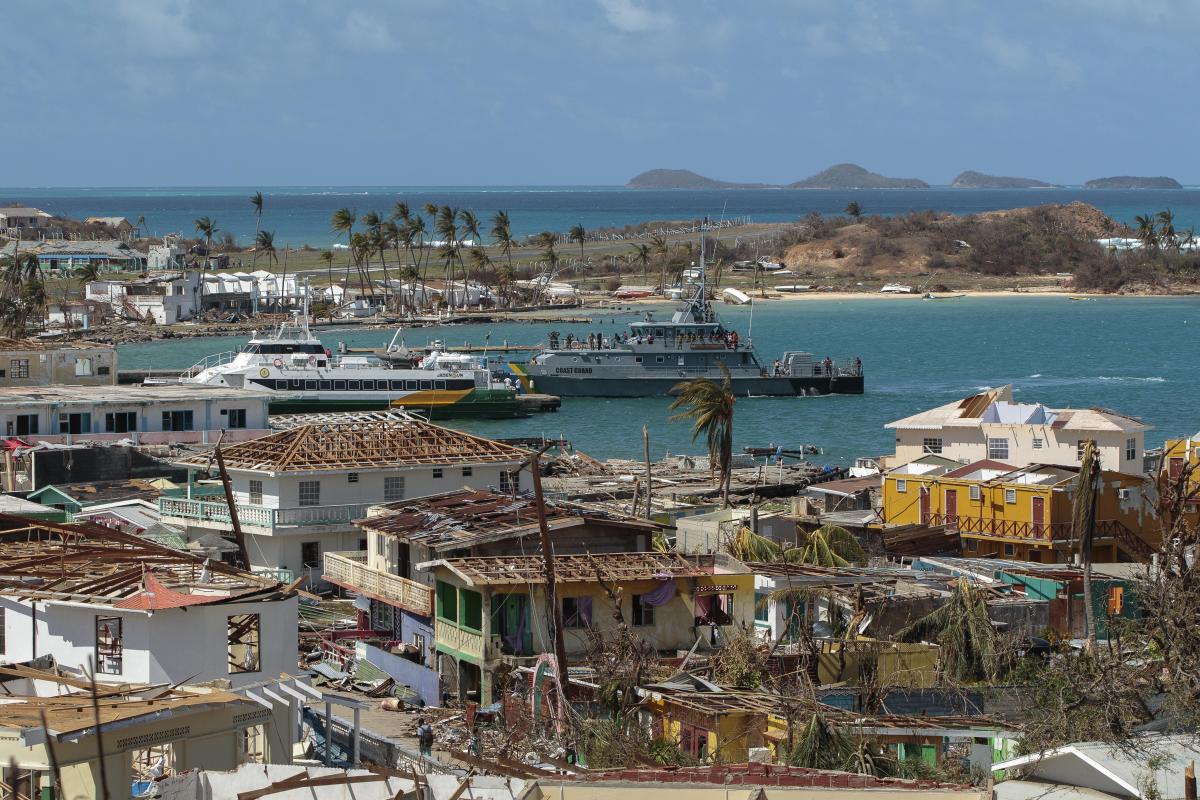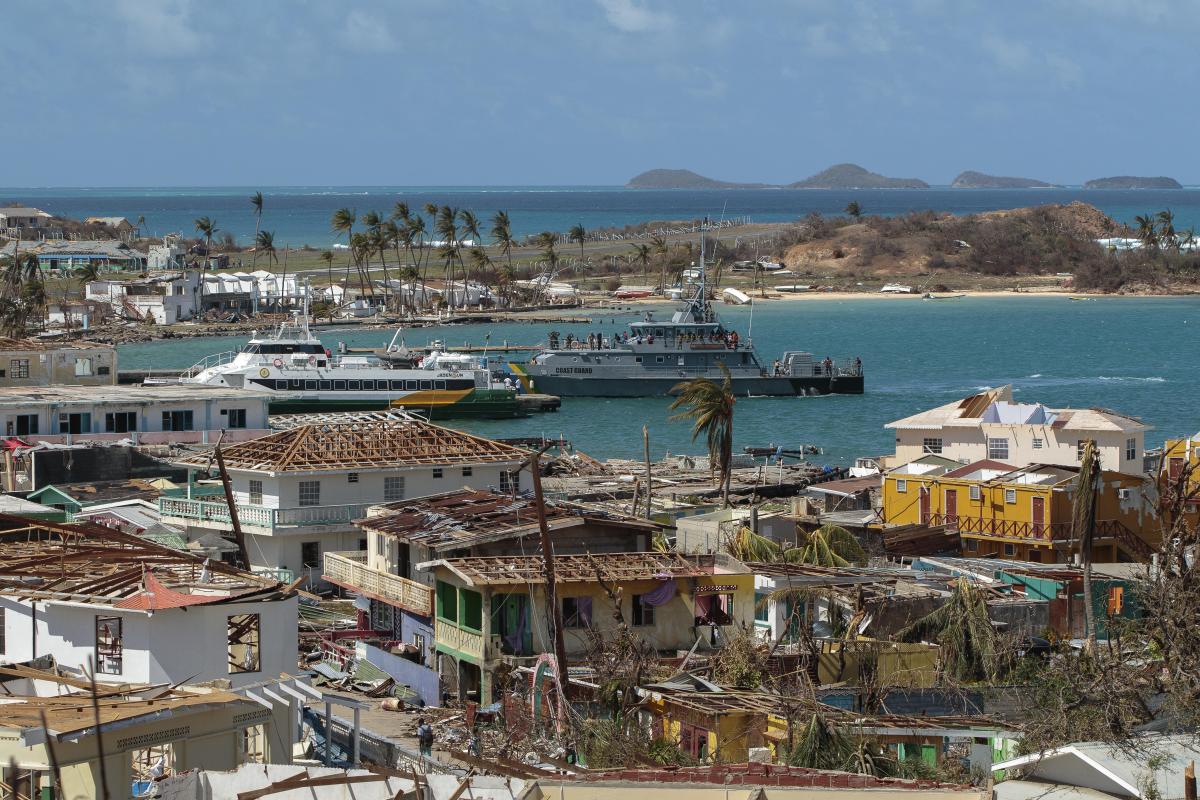
UNITED NATIONS (AP) — The minister for the two islands in Grenada that Hurricane Beryl first slammed into with catastrophic winds had a simple message for U.N. and other humanitarian officials who asked what was needed: “Anything that would allow a human being to survive.”
Tevin Andrews, who was in the devastated island of Carriacou Friday where Beryl first made landfall as the earliest category 4 storm in the Atlantic, also said when asked whether there was flat space for humanitarian workers to set up tents: “The whole island is flat.”
Simon Springett, the top U.N. humanitarian official for the eastern Caribbean and Barbados, who listened to Andrews’ call and relayed his remarks to U.N. correspondents said he didn’t want to sound over-dramatic, “but the islands were really dramatically, catastrophically, catastrophically hit.”
He said Beryl’s fierce rains and wind late Monday in Carriacou knocked out desalination plants, cell towers, and fiber optic cables, left roads impassable, and destroyed probably 95% of housing along with local businesses and income-generating activities.
Carriacou, population 9,000, and nearby Petit Martinique, population 2,000 in the southeast Caribbean were hardest hit, and there is also damage on Grenada’s mainland to the north to a lesser extend affecting roughly 10,000 people, Springett said.
In Carriacou, he said, communications were only re-established on Thursday and the seas were so rough after Beryl that ships couldn’t land and neither could planes because the air control towers “are out.”
In neighboring St. Vincent and the Grenadines, Springett said, three islands with a total population of about 15,500 were also badly affected – Union Island, Mayreau and Canouan.
Speaking from Grenada, Springett said that the U.N. is working closely with the Caribbean disaster emergency management agency and national disaster authorities to get help to those in need, and sending in teams to assess the needs.
The U.N. has released $1.5 million from its emergency humanitarian fund to be split between Grenada and St. Vincent for immediate life-saving assistance, he said. A logistics hub has also been set up in Barbados.
Springett said Carriacou is now accessible, a coast guard vessel is in port, a French naval vessel was arriving Friday, and a public ferry is traveling there every day.
A ship leaving on Saturday from St. Vincent will be dropping supplies in the outer islands of the Grenadines and then carry on to Carriacou and Petit Martinique, he said. Trinidad and Tobago and Guyana are also sending help.
Policemen and coast guard members on the island are unloading the ships and then distributing aid, he said. A volunteer crew is taking a ship to Carriacou on Saturday to clear the roads, and the government is shipping vehicles to help with distribution.
Springett stressed that people’s lives and livelihoods have been destroyed, and he urged donors to be generous in helping Grenada and St. Vincent and the Grenadines recover.
After hitting both countries, Beryl barreled through the Caribbean Sea where it brushed the south coast of Jamaica on Wednesday. It caused at least 11 deaths as it passed through the Caribbean headed for Mexico’s Yucatan Peninsula. On Friday it battered the resort town of Tulum and was heading toward Texas.
Dennis Zulu, the U.N. humanitarian coordinator for Jamaica and the Bahamas, told reporters Friday a flash flood watch remains in effect in different parts of Jamaica, and 70% of the population in hard-hit areas lost their water supply and 40% don’t have electricity.
The government is currently conducting an assessment of damage and needs, he said.. “The damage is widely apparent,” with a lot of housing destroyed, especially in the rural south, he said.
The U.N. emergency fund has released $2.5 million for Jamaica to help with immediate needs, Zulu said.
Both Zulu and Springett expressed concern that Beryl was the first of an expected 20 hurricanes this season – and warned that the impact will set back economic development of Caribbean islands, which don’t have cushions of funds to rebuild.
Caribbean nations have made preparations for the storms, Zulu said. And the fact that Beryl came so early in the hurricane season “gives us an opportunity to see and improve, and have some lessons learned from this experience.”
EMEA Tribune is not involved in this news article, it is taken from our partners and or from the News Agencies. Copyright and Credit go to the News Agencies, email news@emeatribune.com Follow our WhatsApp verified Channel





